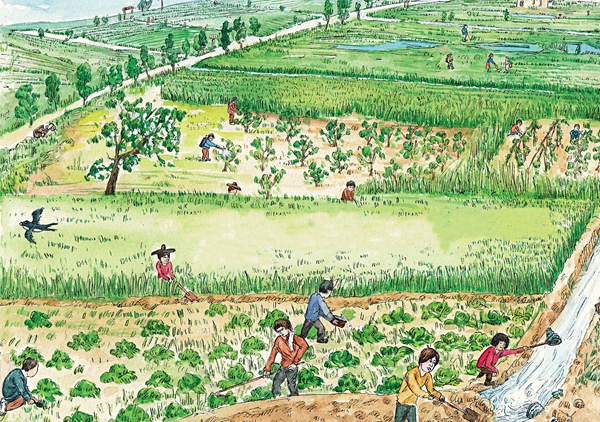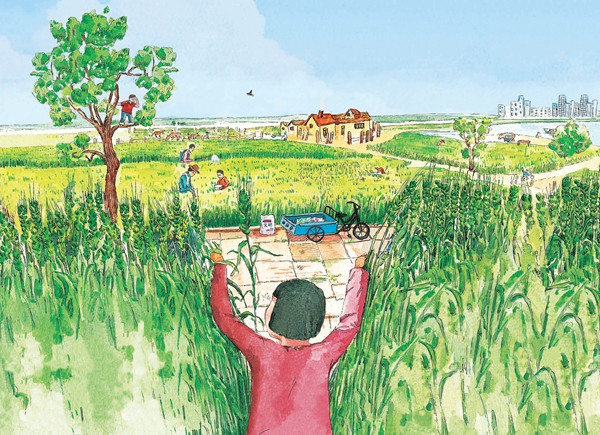Beginning of Summer
The “Beginning of Summer” (Lixia) is the seventh of the 24 solar terms. It falls on May 5 this year on the Gregorian calendar. After the “Beginning of Summer”, trees exuberantly put out leaves, crops grow fast, the heat of summer approaches and farmers are very busy.
People have attached great importance to the “Beginning of Summer” since ancient times. It is a vital moment in the agricultural cycle. It is recorded that in the Zhou Dynasty (1046 - 221 BC) the emperor would take his top civil and military officials to the outskirts of the capital on this day to welcome summer. He would also send other officials to encourage farmers to get on with their farm work.

Some places in China have a tradition of weighing people on this day. They believe that if you are weighed on this day, you will not lose your appetite over the hot summer. Traditionally people hung big wooden scales at the gateway to village and attached a small wooden seat on one side. Villagers would take turns to sit on the seat and be weighed. The person in charge of operating the scales would say auspicious words while weighing people, such as: “You will live to 91, as the scale mark indicates.”
As summer gradually permeates the air, temperatures rise and hours of daylight lengthen. In towns, people can’t wait to dress up in their summer clothes, while in the countryside, farmers busy themselves clearing out their barns as the summer harvest approaches. In southern China, farmers plant different kinds of vegetables in the fields.
Animals and plants grow fast at this time of year, and thunder and rain keep increasing. The region at the lower reaches of the Yangtze River enters the rainy season, cloudy and drizzly for days on end. Small flying insects which favor rainy weather begin breeding en masse - but they just so happen to be a delicacy for frogs. After a hearty meal, frogs croak merrily in the fields or on the riverbanks. They are the guards of the fields.
Chinese peonies, of numerous varieties, bloom in May and are thus called the Goddess of the Flower of May. The flowers have layer upon layer of petals. Corn, beans, and cotton sown during the “Grain Rain” have sprouted by this time; winter wheat is growing fast, and needs watering and weeding as soon as possible.
In many places, people eat eggs and hang boiled eggs around children’s necks on the “Beginning of Summer.” There is a legend that warns of a time when many people – especially children – started to feel weary and restless when the weather became hotter. They lost their appetite and became thinner. People asked Nüwa (the Creator Goddess in primitive myths) for help. She told them to hang boiled eggs around the children’s necks to help avoid illness. This tradition is still carried on today. People now weave a small bag with colorful threads and put an egg inside, which is then hung around the necks of children.
The health-preserving theory of traditional Chinese medicine pays great attention on the “Beginning of Summer.” It warns people not to take thick coats off, because it’s still cold in the morning and at night. It also advises people to go to sleep a little later and rise a little earlier, responding to longer daylight hours and shorter night time; but people should take a good nap at noon to stay energetic for the whole afternoon.

